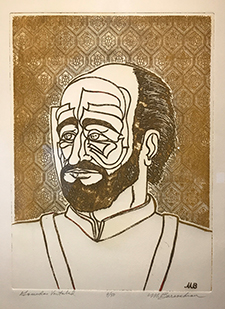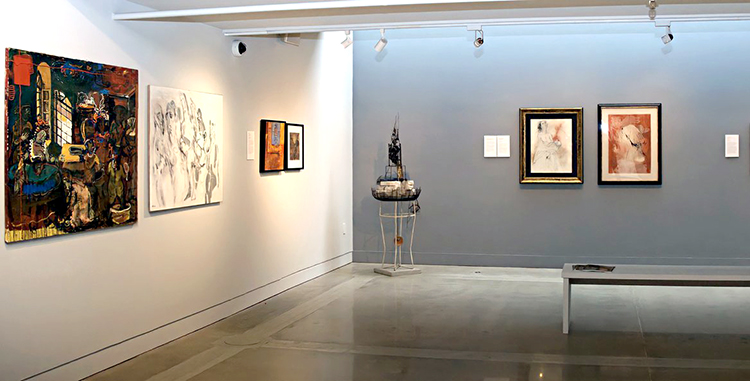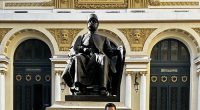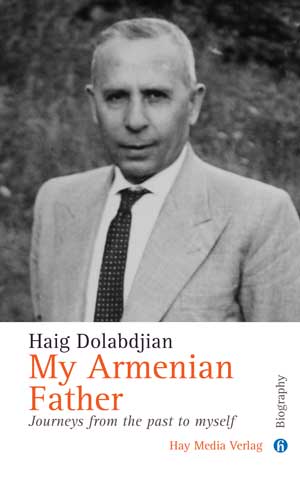WATERTOWN, MA–The Armenian Museum of America in Watertown has recently opened its latest exhibition in the Adele and Haig Der Manuelian Galleries, “Gandzaran! Notable Selections from Our Collection.” The show is curated by Ryann Casey, and co-curated by Gary Lind-Sinanian and Elias Trout.
“Gandzaran!” showcases 39 works by 24 artists from around the world. It is scheduled to run through August 4, 2024.
In recent centuries, Armenian fine art often focused on illuminations, reliquaries, and other pious objects, the most significant of which were secured and hidden in the gandzaran (գանձարան), or treasury, of a monastery. These treasure vaults were designed to protect religious works, which would be displayed periodically for the faithful, then returned to the vaults to be preserved for the ages.
“Drawing from the vaults of the Museum here in Boston, its own gandzaran of sorts, this exhibit highlights the development of Armenian art in the 20th and 21st centuries, from religious motifs to the Soviet period and its continuous reinterpretation among contemporary artists around the world,” says Curator Ryann Casey.
“It’s a show full of diversity that demonstrates the breadth of history in Armenia and the Diaspora, featuring paintings, etchings, and sculpture,” adds Ms. Casey. Some of the artists include Minas Avetisyan, Maria Manukyan Batlle, Jean Carzou, Edgar Chahine, Felix Eghiazarian, Charles Garabedian, Sarkis Hamalbashian, Jean Jansem, Kevork Mourad, Reuben Nakian, Naomi Pridjian, and Hovsep Pushman.


The show opened with a preview for Museum members on March 22. It was attended by more than 100 people including Museum Trustee Hapet Berberian, the family of the late Martin Barooshian, and the curator of his Trust, Michael J. Russo. Mr. Barooshian is an American-Armenian surrealist featured in the exhibition with two incredible etchings, including one of Gomidas Vartabed.
Executive Director Jason Sohigian noted at the opening, “We hope this exhibition gives visitors a glimpse of the range and complexity of our modern and contemporary art collection.” He went on to thank the artists who created these works, the donors who have gifted these pieces to the collection, and the people who support the mission of the Museum as members.
A section of the show reflects on collecting art. The first acquisitions outside of historic art in the collection of the Armenian Museum of America were primarily paintings donated by the founders, members, and artists. With a growing reputation, the Museum gradually attracted the attention of art collectors, establishing itself as a hub of Armenian cultural production and as a contributor to the wider arts community. “Armenian art is a living tradition–it is the Museum’s duty to embrace that dynamism as we acquire new works,” concludes Sohigian. “Our collections now include emerging artists alongside nationally and internationally renowned Armenian artists, representing a wide array of mediums, movements, and eras.”
The curator of the exhibition is Ryann Casey, a New Jersey based artist and educator. She holds a BA in Photography from Stockton University and an MFA/MS in Photography and Art History from Pratt Institute. She currently works as the Exhibition Coordinator at the Stockton University Gallery and is an adjunct Professor of Photography, Art History and Critical Theory.
The Armenian Museum of America is located at 65 Main Street, Watertown, MA. Its three floors of gallery space are open from Thursday to Sunday from 12:00 to 6:00. For more information about this exhibition, please visit www.armenianmuseum.org/gandzaran.










